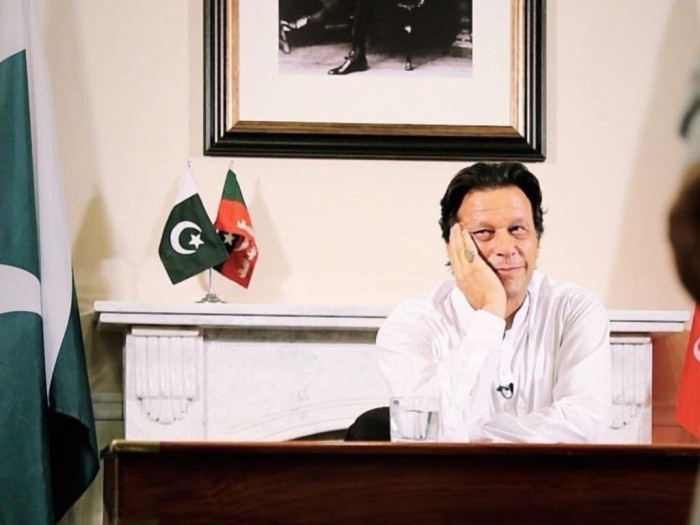Author: Ch Hussnain Ali Bajjar
Imran Khan is a former international-cricket-star-turned-politician who became the first prime minister in Pakistan’s history to be ousted in a vote of no confidence. He was elected in July 2018 promising to fight corruption and fix the economy. But those pledges went unmet and the world’s second largest Muslim country was gripped by financial crisis. By late March 2022 a series of defections had deprived him of his parliamentary majority and the opposition pounced, tabling a motion of no confidence. Mr Khan sought to circumvent the move by having parliament dissolved and calling a snap election, but the Supreme Court ruled this was in breach of the constitution. On 10 April the vote of no confidence took place and Imran Khan lost, his opponents having secured 174 votes in the 342-member house. He claimed that his political opponents were colluding with the US to bring about regime change because of his policies on Afghanistan, Russia and China.
The former PM still commands considerable public support – tens of thousands took to the streets in cities across Pakistan on the night he was ejected from office. As a politician Imran Khan publicly upholds liberalism, but at the same time appeals to Islamic values and anti-West sentiment. On his watch, there has seen a significant rise in Islamist militancy in Pakistan, and religious extremists have strengthened their position. He has been criticized as sympathetic towards the Taliban, and branded “Taliban Khan” by opponents.
Pakistan – a long-time ally of the West, however reluctant in the “war on terror” – has continued strengthening ties with China under his leadership. It abstained in the UN vote on Russia’s invasion of Ukraine in early 2022. Tense relations with neighboring India, Pakistan’s historic rival, did not improve during his tenure. Mr. Khan can point to some successes. Pakistan’s Covid record has been the best in South Asia, and a poverty-alleviation programmed made progress.
Providing universal healthcare in two provinces is perhaps his most notable achievement – and could help him in elections which are due by late 2023, but could be called sooner. In the weeks since Pakistan’s former Prime Minister Imran Khan was removed from government, he has been conducting an aggressive campaign – on the ground and online – to get himself back into office. And it has put the country’s media outlets in a difficult position, especially when reporters remain beholden to who really runs the country.







